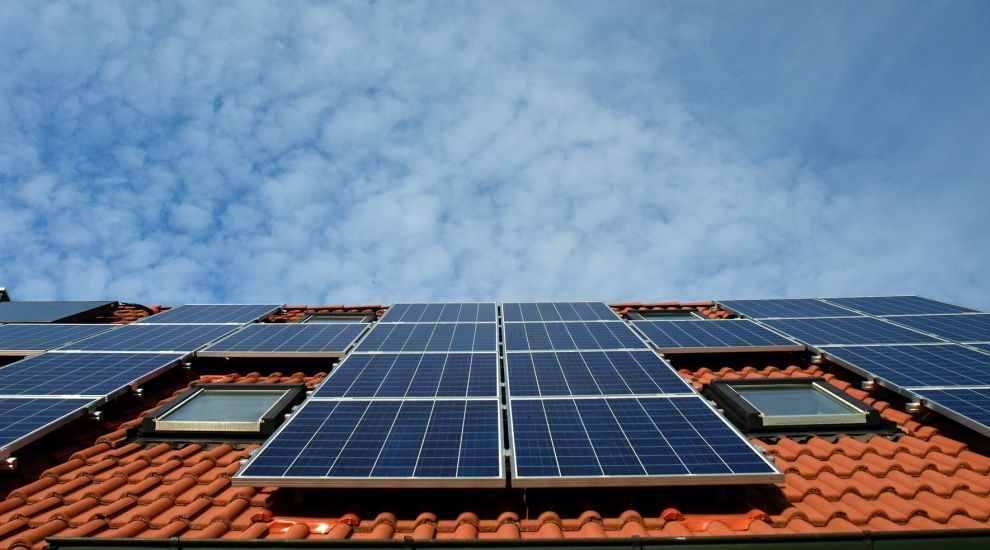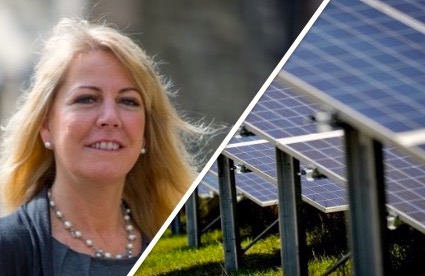

Ministers have finally thrown their weight behind an initiative to stop Jersey Electricity from imposing a controversial charge on businesses generating their own ‘green’ energy, after they were criticised for not supporting it in the first place.
Deputy Carolyn Labey has led calls to scrap the so-called ‘stand-by charge’ on commercial customers who generate their own power, but call on the JEC’s back-up sources when they cannot produce enough.
She claims that the charge simply serves to maintain their monopoly on the market; while JEC say that it is there so that they can avoid passing on extra costs to lower income customers.
Deputy Labey brought forward her proposals back in October, but they were postponed after Ministers argued that politicians would need more time and information before making a decision - that led to widespread criticism from islanders, fellow politicians and members of the renewable energy community that they were not prioritising the island's green future.

Pictured: Deputy Carolyn Labey, who is leading efforts to put renewables on the government's agenda and restrict what she believes to be a monopoly on the energy market by the JEC.
Now it appears they’ve had a change of heart, with the full Council now claiming they’re “pleased” to back the Deputy’s proposals – apart from asking CICRA to become JEC’s regulator.
The Council are now supporting a full review of the current situation, which is likely to cost between £50,000 and £100,000 to come from the Environment Department’s budget. They also say they’re ready to commit to assessing the current electricity law, which was written in 1937, and making the Minister for Economic Development bring forward an Action Plan on how to develop the renewables sector.
The news will be welcomed by a number of stakeholders who wrote to Deputy Labey and other States Members in advance of the debate on her ideas this week.
The owners of a fruit and vegetable wholesalers stated in a letter to the Deputy: “The States, as representatives of our beautiful Island and our future, should be doing all they can to encourage every business owner to opt for a clean renewable energy source and all this bill is doing is discouraging anyone who is thinking about opting for solar panels in order to line the JEC’s own pockets… The JEC should not be trying to take more money off the people who are trying to do the right thing for our Islands long term future at a time where we all need to be having a serious look at ourselves and what we are doing to our planet and we all should be making changes where ever we can to help the environment and become more sustainable.”

Pictured: Sunworks' Mark Brandon was one of many voices to call for support for Deputy Labey's idea.
Mark Brandon of Sunworks, a family-run solar energy company, also wrote to States Members, pleading for them to vote in favour of Deputy Labey’s proposals. “Decarbonising the electricity supply was the past goal and we must look forward to the next challenge that will move Jersey towards making the best of our natural resources. Moreover, this signals to the world that Jersey is a place to do business and takes environmental issues seriously,” he said.
Meanwhile, a representative for the Farmers’ Union told Deputy Labey said that allowing renewables to flourish in Jersey would mean more money kept in the local economy “instead of giving it to our French cousins." 92% of island energy is currently imported from France. They added that the declining glasshouse industry could be buoyed by income from solar panel energy supply, as well as produce.
The JEC dispute this, however. They argue that the charge is reasonable, and helps with maintenance costs relating to the electricity distribution networks such as La Collette Power Station and the undersea cables to France.
They added that, if they weren’t able to charge commercial renewable energy providers using JEC as a ‘back-up’ - such as during the winter months when solar panels are less effective - that loss could be passed onto customers in the form of higher prices.

Pictured: JEC CEO Chris Ambler.
Jersey Electrcity CEO Chris Ambler previously commented: “If customers who operate embedded renewable systems and require standby power did not contribute their share of our fixed infrastructure costs, the burden would fall on all other customers to make up the shortfall. Ultimately, we believe this leads to an unfair situation where those that can afford to invest in embedded renewable generators being subsidised by those that cannot.”
Regardless of the outcome of this week’s vote, the JEC have agreed to hold off on implementing the controversial charge until May this year following petitions from the Environment Minister.
Comments
Comments on this story express the views of the commentator only, not Bailiwick Publishing. We are unable to guarantee the accuracy of any of those comments.